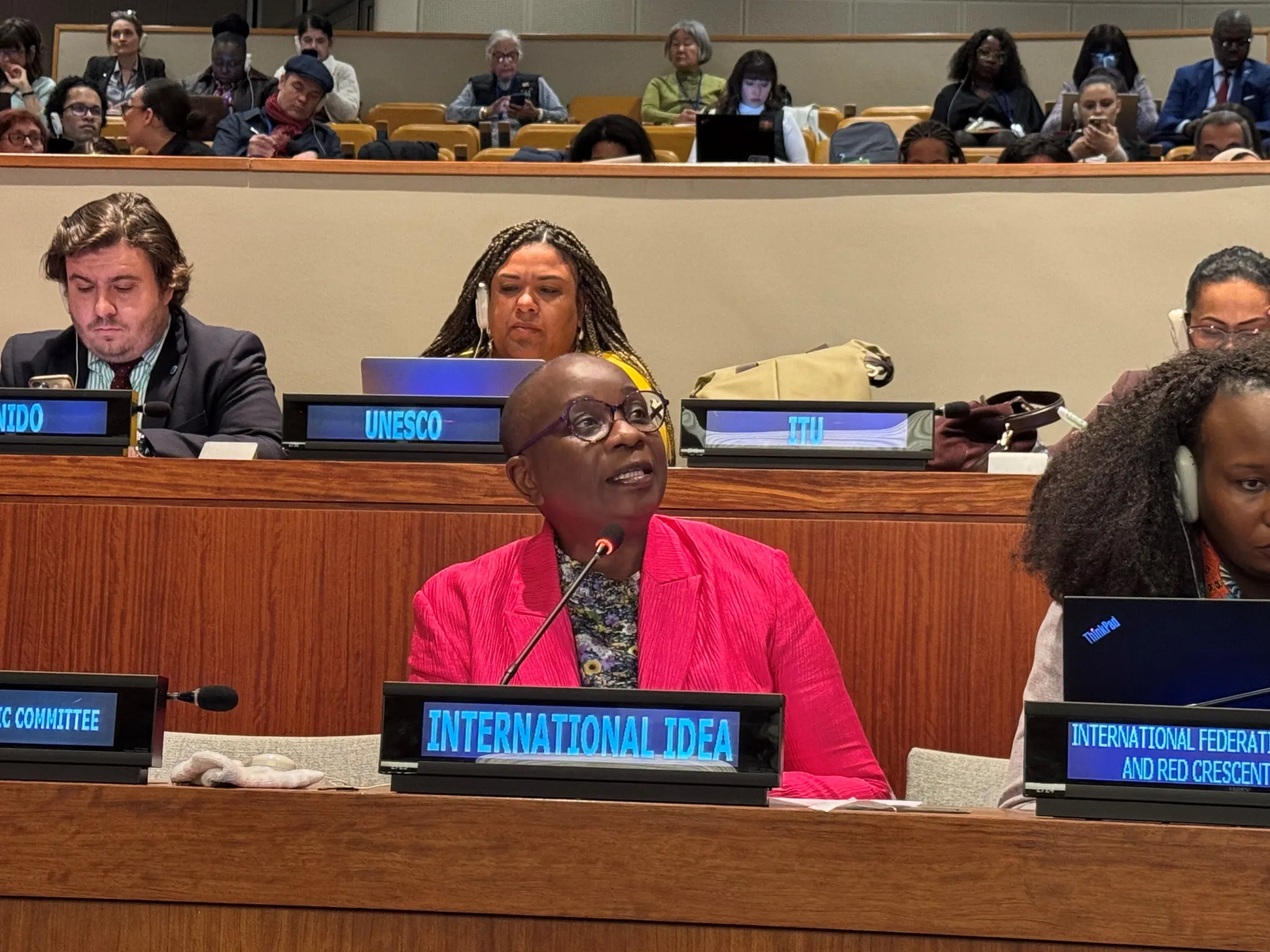Statement at the 69th Commission on the Status of Women

69th Commission on the Status of Women
General Discussion
10-21 March 2025, UNHQ, New York
Statement by
International Institute for Democracy and Electoral Assistance
Excellencies,
Thirty years ago, the 1995 Beijing Declaration recognized gender equality as essential to democracy—reflecting the simple fact that democracy cannot exist without the full and equal participation of women. The same year, International IDEA was founded with a firm commitment to help advance gender equality, human rights, and democracy for all.
The vision set in 1995 was clear: a just and inclusive world requires women’s equal participation in political and economic decision-making. And progress has been made. According to International IDEA’s Global State of Democracy Indices, global gender equality scores have risen by 19% since 1995. However, there are important regional disparities, as well as glaring differences between political systems. Most notably, gender equality thrives in democracies. Data from International IDEA Global State of Democracy reports have shown that only 3% of democracies perform very poorly on gender equality measures, compared to 50% for authoritarian regimes. Just as gender equality is key to democracy, so too is democracy key to gender equality.
Despite the progress achieved, the evidence also shows the size of the task ahead. Three decades after Beijing, women still hold only 27 per cent of parliamentary seats globally and less than 28 per cent of leadership positions in the workplace. Meanwhile, violence and harassment against women in politics has surged in the last decade. The problem is compounded by a lack of comprehensive data on political violence against women, insufficient monitoring of political violence, and declining donor support for gender-focused programs. Only 15.4 per cent of the nine targets of SDG 5 are on track, and this undercuts any hope of achieving the 2030 Agenda.
More ominously, we are seeing today a global backlash against gender equality that aims to reverse the hard-won gains of the past several decades. This backlash is a twisted recognition of a simple truth—the emancipation of women is the single most important transformation that the world has seen over the past century. This profound global change can be delayed but not stopped.
Those who stand against the equality of rights between genders are fighting a violent rearguard battle in a war that they will ultimately lose. The fundamentalists and reactionaries that even today want to subjugate women, limit their rights, and control their bodies may be able to inflict a lot of damage on the legitimate aspirations of women, but they are losing, and they know it. That’s precisely why they are lashing out.
Excellencies,
The emancipation of women will not stop. Neither will the quest for more diverse, equitable, and inclusive societies. Each one of us must decide our role in the irresistible march towards the equality and dignity of all human beings.
Hence, it is our fervent hope that the Member States of this body will take concerted measures to ensure that the commitments in the Beijing Declaration remain a priority—and that they are actually acted upon. This revitalized commitment to achieving gender equality must go hand in hand with a strengthened commitment to putting democracy at the heart of UN discussions, because democracy is the single most powerful instrument to accelerate progress towards gender equality. It is therefore deeply disappointing that member states failed to reaffirm the essential link between democracy and gender equality in the political declaration approved last week.
International IDEA will continue working alongside Member States, the UN system, civil society, and global partners to accelerate the empowerment of all women and girls. We reaffirm our unwavering commitment to gender equality—not just as a principle, or an aspiration, or a cornerstone of democracy, but as an essential step towards the dawning of a reconciled humanity.
Thank you.